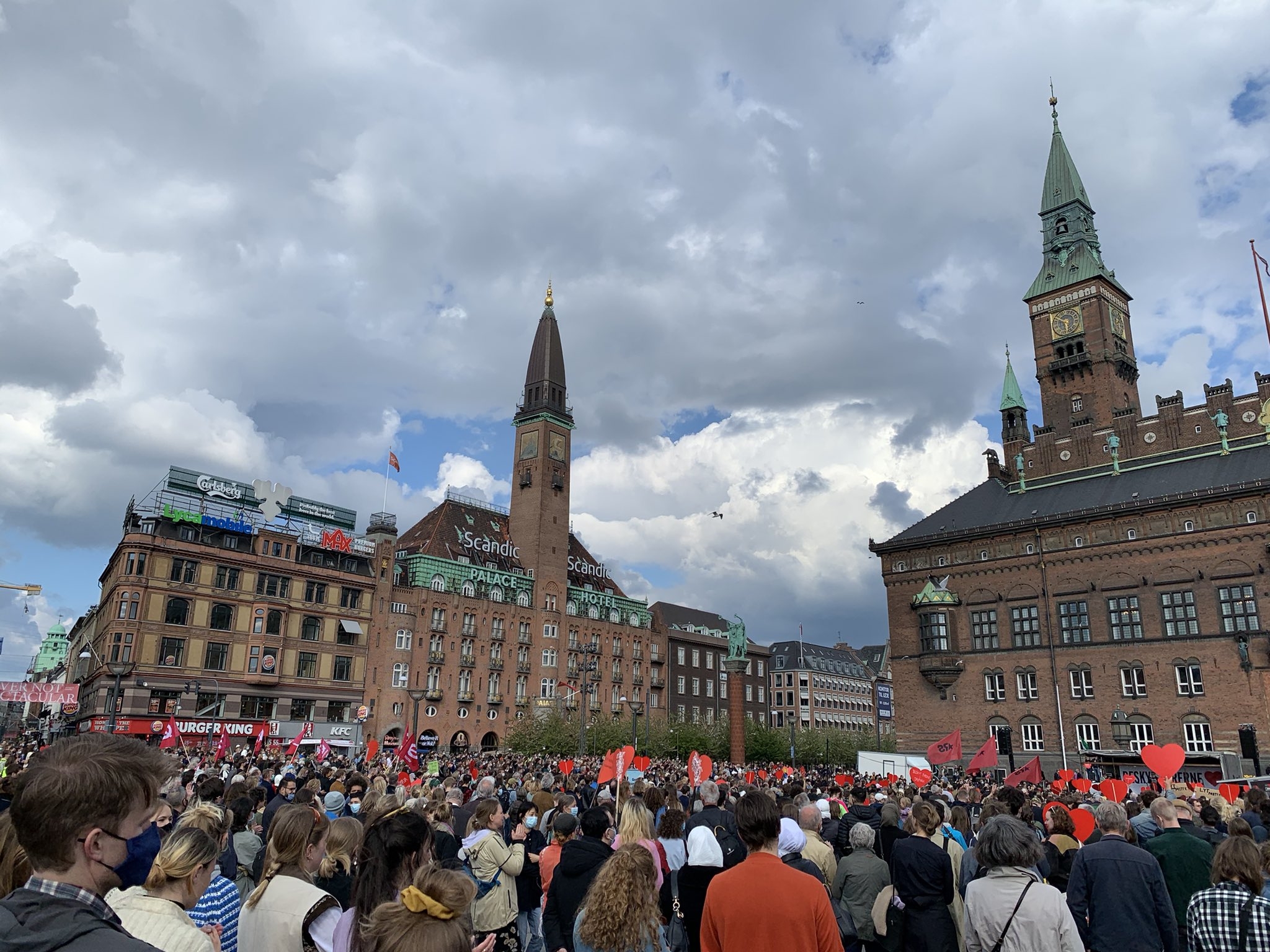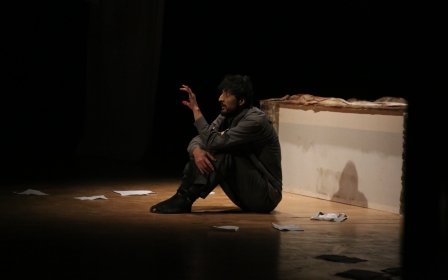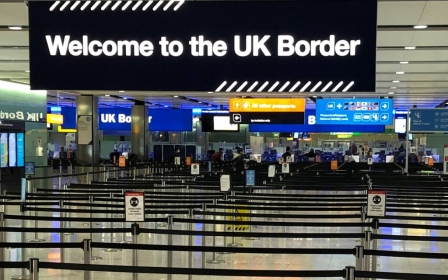'Syria is not safe': Protests grip Denmark over plans to deport refugees

Protests gripped Denmark on Wednesday in opposition to the government's decision to deport Syrian refugees back to the war-torn country.
The "red heart protests", backed by Amnesty International, took place in Copenhagen as well as 24 other cities and towns following the government's decision to withdraw residency permits from some Syrian refugees.
Protesters amassed in the capital Copenhagen where they held up red hearts and carried placards reading: "Syrian refugees are welcome."
The Danish government, which once supported the integration of asylum-seekers, has shifted its policy in recent years and now hopes to eventually return all refugees to their home countries.
New MEE newsletter: Jerusalem Dispatch
Sign up to get the latest insights and analysis on Israel-Palestine, alongside Turkey Unpacked and other MEE newsletters
Claiming that Damascus and the surrounding region is now safe, so far at least 380 Syrians have either had their residency permits revoked or were denied renewal and are now awaiting a final decision by the Danish Refugee Appeals Board.
Meanwhile, at least 39 Syrians who had sought refuge in Denmark have already received a final decision and have been placed in "return centres" where they are not allowed to work or pursue an education.
Since the Danish government has no diplomatic ties with Syria, it cannot actually return the refugees that have been cleared for repatriation.
"Here they will stay, separated from their families, their communities, their schools and workplaces until they can be deported," Amnesty International has said of the return centres.
#SyriaNotSafe
Amnesty, along with several other rights groups, has expressed concern over Denmark's new policy, insisting that Syria remains far from safe.
"Bombings may have stopped in some areas in Syria, but detentions, disappearances and torture continue," Amnesty warned in a Twitter post on Wednesday.
Dan Hindsgaul, acting secretary general of Amnesty International Denmark, also warned that the organisation's research has shown that Syrians who have been sent back "are routinely subjected to interrogation by Syrian security forces".
"The security forces are known and notorious for being behind arbitrary detention, torture and murder,” Hindsgaul continued.
Using the hashtag #SyriaNotSafe, activists have highlighted such concerns, calling on Mattias Tesfaye, Denmark's migration minister for the country's centre-left Social Democrats, to reverse his decision.
Tesfaye, the son of an immigrant himself, has said that immigration is a threat to Denmark's social cohesion and its status as a Scandinavian welfare state.
Denmark's Prime Minister Mette Frederiksen doubled down on the Social Democrat party's goals while speaking to parliament earlier this year, declaring that she eventually wants the country to receive "zero asylum seekers".
"We cannot promise zero asylum seekers, but we can set up that vision, as we did before the elections," Frederiksen said at the time. "We want a new asylum system and we will do what we can to introduce it."
'Young people... after a few years in the country, have begun to dream and think in Danish'
- Natasha al-Hariri, Danish Refugee Council Youth
Tim Whyte, secretary general of Mellemfolkeligt Samvirke, a Danish NGO supporting Wednesday’s protests, said that choosing to send Syrians back sent the wrong message to Syrian President Bashar al-Assad's government.
"Denmark was once a pioneer internationally in the UN's protection of refugees. Now the Danish government, unlike all other countries, will send back Syrians and thus de facto legitimise President Assad's regime," Whyte said.
"We must say the opposite, and fortunately there are now also members of the Social Democratic governing party who are doing this," he continued.
Natasha al-Hariri, director of the Danish Refugee Council Youth (DFUNK), highlighted the struggle of youth in particular, many of whom were just getting settled in their new lives.
"Young people who have fled to Denmark, and who after a few years in the country have begun to dream and think in Danish, are now facing another violent trauma caused by the Danish government's current deportation policy. No one should be deported to the same dictator that they fled from,” Hariri said.
The area around Damascus that Copenhagen has declared to be safe includes the once-besieged Ghouta, where in 2013 the Syrian government killed thousands in a chemical weapons attack.
Around 35,000 Syrians - most of whom arrived during the war - currently live in Denmark, which has a total population of nearly 6 million people.
Middle East Eye delivers independent and unrivalled coverage and analysis of the Middle East, North Africa and beyond. To learn more about republishing this content and the associated fees, please fill out this form. More about MEE can be found here.




